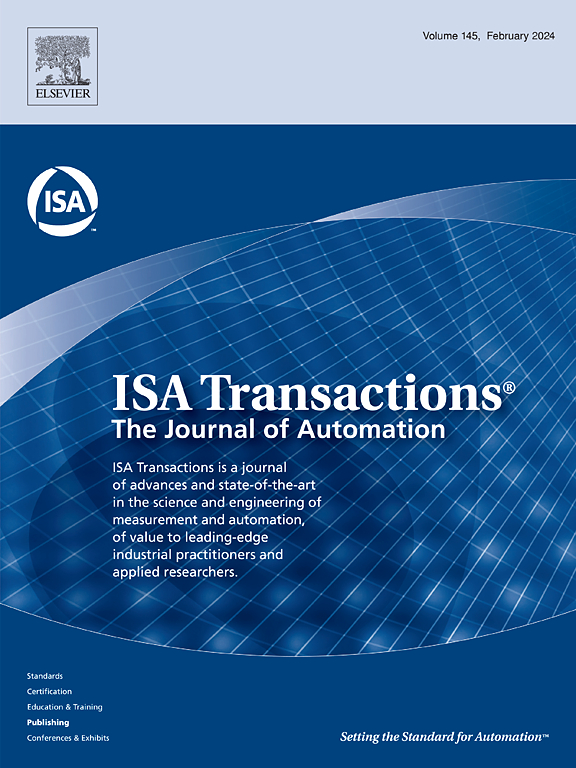Fuzzy reinforcement learning based control of linear systems with input saturation
IF 6.3
2区 计算机科学
Q1 AUTOMATION & CONTROL SYSTEMS
引用次数: 0
Abstract
This research introduces an innovative approach to optimal control for a class of linear systems with input saturation. It leverages the synergy of Takagi–Sugeno (T–S) fuzzy models and reinforcement learning (RL) techniques. To enhance interpretability and analytical accessibility, our approach applies T–S models to approximate the value function and generate optimal control laws while incorporating prior knowledge. By addressing the challenge of limited interpretability associated with conventional neural network utilization in RL, our approach utilizes segmented functions for saturation derivative characteristics approximation, effectively handling non-differentiability issues at saturation boundaries. Furthermore, our research presents a novel gradient identification method to overcome the impractical reliance on next-time-step State variables in RL for current-time-step policy improvements. This enables the derivation of optimal control laws corresponding to each fuzzy rule, ensuring practical applicability in the control field. The proposed methodology is rigorously evaluated through computer simulations, confirming its effectiveness, optimality, and convergence properties. This research contributes valuable insights and practical solutions to input-saturation control systems, offering a versatile and robust framework for real-world applications.
求助全文
约1分钟内获得全文
求助全文
来源期刊

ISA transactions
工程技术-工程:综合
CiteScore
11.70
自引率
12.30%
发文量
824
审稿时长
4.4 months
期刊介绍:
ISA Transactions serves as a platform for showcasing advancements in measurement and automation, catering to both industrial practitioners and applied researchers. It covers a wide array of topics within measurement, including sensors, signal processing, data analysis, and fault detection, supported by techniques such as artificial intelligence and communication systems. Automation topics encompass control strategies, modelling, system reliability, and maintenance, alongside optimization and human-machine interaction. The journal targets research and development professionals in control systems, process instrumentation, and automation from academia and industry.
 求助内容:
求助内容: 应助结果提醒方式:
应助结果提醒方式:


